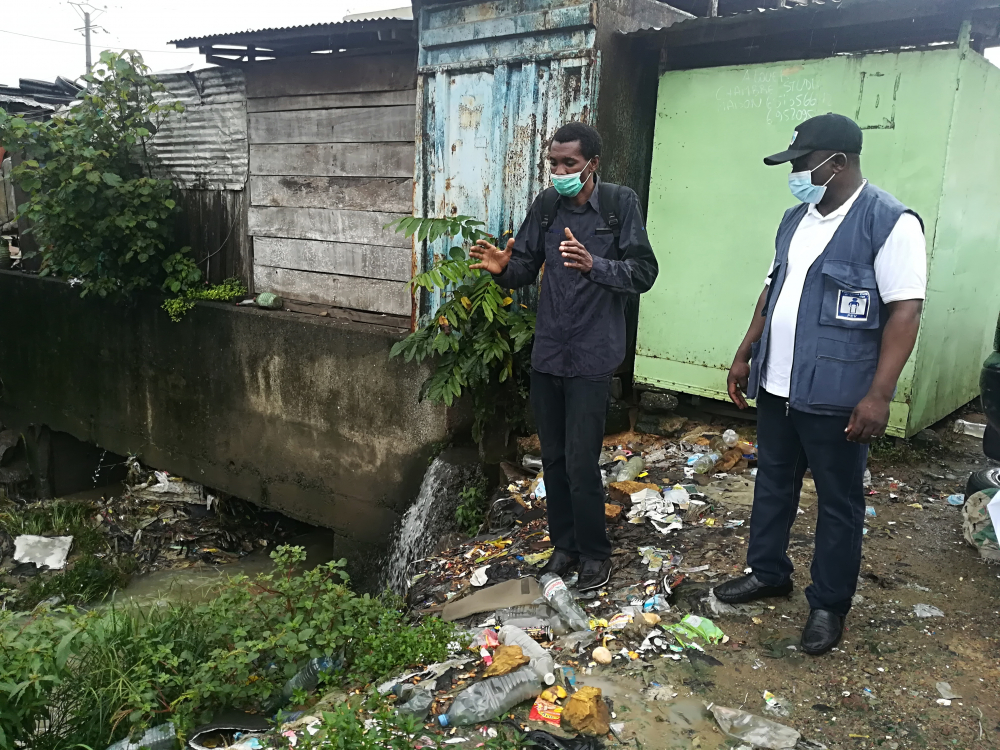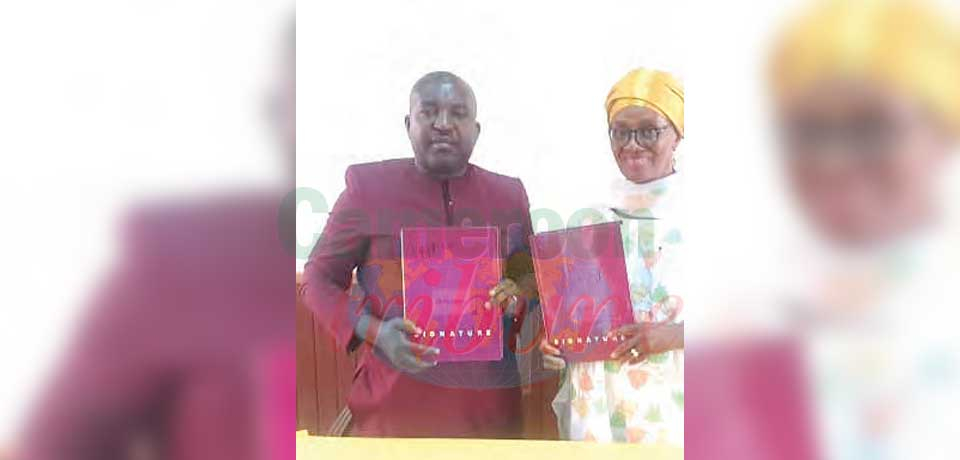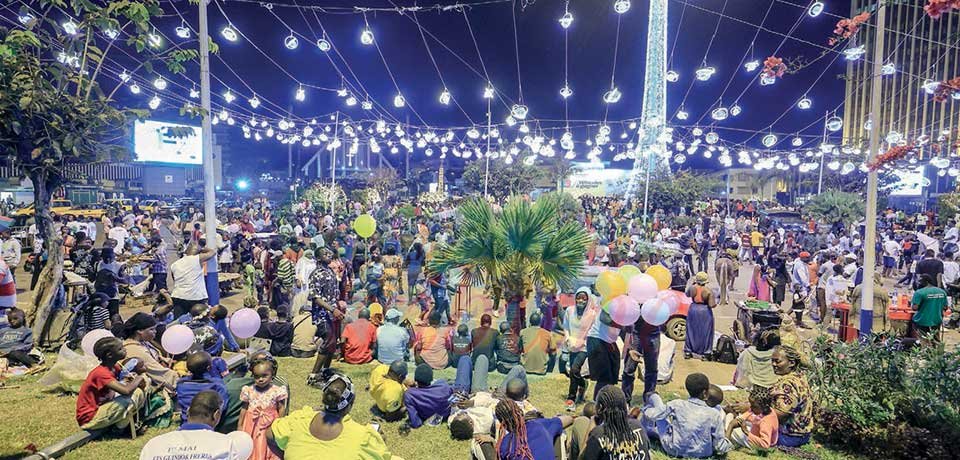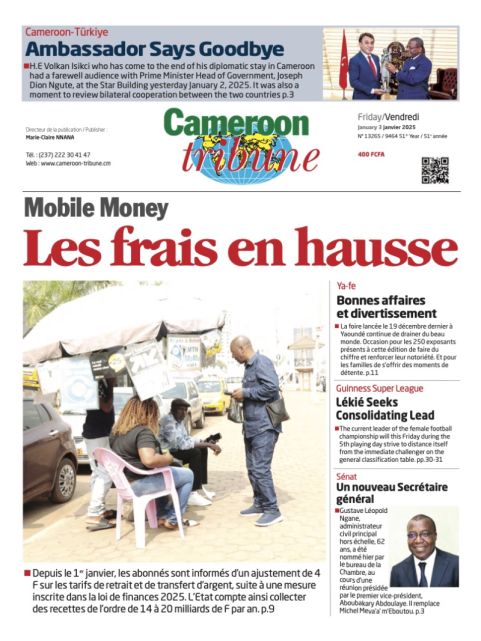Ava’a Raphaël : The Polio Virus Hunter In Douala’s Filthy Waters
- Par Kimeng Hilton
- 16 sept. 2020 10:48
- 0 Likes

Quite unknown to many people, polio viruses thrive in dirty water before finding host in unprotected human bodies.
Ava’a Raphaël is an “unusual” volunteer. In the eyes of many who do not understand his job. To others, something is certainly wrong with him. “For a long time, I took him (Ava’a) for a fool,” says Tarlafor Guy Gerard, a nearby resident of Pamplemouse Stream Confluence. “I didn’t understand how a sane man would step into a dirty stream very early in the morning to collect water in little containers!” Tarlafor continued in astonishment.
“But I now understand the importance of his work. I can testify of his hard work. I will like to see his work make a difference in our environment. Thank you UNICEF for enabling people to discover our neighbourhood,” Tarlafor Guy Gerard told Cameroon Tribune at the Pamplemouse Confluence, Douala, on September 8, 2020.
Ava’a Raphaël – in his forties – has forged on. Every month collecting water samples from the dirty streams that empty into the Pamplemouse Confluence in the Nylon-Brazzaville neighbourhood of Douala III Subdivision. Ava’a is a community health volunteer with the Littoral Regional Expanded Programme on Immunisation. “Before 6 am, I am at Pamplemouse Confluence to collect samples, using different utensils,” explains Ava’a.
“The site was chosen because it contains waste water and refuse from several homes. Some people excrete or dump human waste into the streams that collect in the confluence, making it a potential area for polio viruses, microbes and bacteria to thrive,” Ava’a says. Once a month – that is, every 28 days – Raphaël collects samples that are received, registered and subsequently tested by the authorities for the presence of polio viruses in the dirty confluence.
The good news of Cameroon’s certification on June 18, 2020 by the World Health Organisation, WHO as a poliomyelitis-free nation risks being drowned by the need to continue vaccinating children aged below five years, warns Zenabou Simpore, Polio Vaccination Coordinator, United Nations Children’s Fund, UNICEF Cameroon. This is more so because only the wild polio virus type has been eradicated. With two other types still lurking in dirty waters in the country. Which from time to time succeed in finding hosts in the bodies of unvaccinated children, Zenabou says.
“We have so far had 10 cases of polio since the beginning of 2020, but none was the wild type,” Zenabou points out. In fact, the last case of wild polio virus was recorded in Cameroon over three years ago. This qualified the country to be declared wild polio-free last June. “But this is not a permanent status,” warns Simpore. “As long as all polio types have not been eliminated across the globe, there is still strong possibility of resurgence or re-infection,” ...
Cet article complet est réservé aux abonnés
Déjà abonné ? Identifiez-vous >
Accédez en illimité à Cameroon Tribune Digital à partir de 26250 FCFA
Je M'abonne1 minute suffit pour vous abonner à Cameroon Tribune Digital !
- Votre numéro spécial cameroon-tribune en version numérique
- Des encarts
- Des appels d'offres exclusives
- D'avant-première (accès 24h avant la publication)
- Des éditions consultables sur tous supports (smartphone, tablettes, PC)














Commentaires